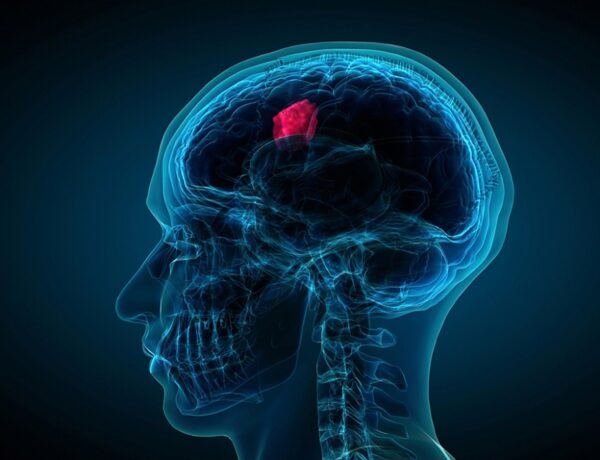Table of Contents
Headaches can range from a mild annoyance to a debilitating event, depending on the severity. For some people, they exist as an occasional occurrence that is not a significant factor in their quality of life. However, some people find that migraines and headaches find them frequently, sometimes forcing them to call in at work or cancel events they had planned to attend.
The root of a headache can lie in many possibilities, some of which are genetic. Tension headaches starting in the neck or back of the head can be triggered by sicknesses such as colds and infections or even a high degree of stress and outside allergens, such as powerful chemicals or potent perfumes. Other times sudden weather changes are to blame, the shifting pressures triggering irritation in the nerves.
On the other hand, sometimes there is a less obvious solution to a headache problem, and this underlying cause can result in a neck injury.
Common Types Of Headaches
Headaches can manifest in various ways, affecting a person differently depending on the culprit behind the headache. If you are experiencing frequent headaches, it can be helpful to learn more about your symptoms to determine whether or not your type of headache may result from neck injury or is related to other conditions.
- Tension Headaches: If you are suffering from a tension headache, it feels like someone has wrapped a binding around your brain and is slowly tightening it. This pain can affect the entire head, causing a feeling of unpleasant pressure. At times, associated pain can transfer down to the neck and shoulders.
- Cluster Headaches: Sometimes occurring after a migraine and other times striking suddenly out of nowhere, cluster headaches are so known because they tend to affect only one side of the head, often feeling as though the pain is coming from behind a single eye. This type of headache can result in significant pain, extending to the neck.
- Migraine Headaches: Migraines can begin as a slow, dull throb and then gradually become powerful enough to keep its victims in bed, sometimes for days at a time. Moreover, there are often additional side effects, even in less severe cases, such as vision problems, nausea, difficulty thinking and forming the right words, vomiting, and more. In some cases, the neck also experiences discomfort.
While these three are easily recognizable headache classifications, they are far from the only ones. Other headaches result from exercise, inflamed sinuses, hormones, excessive alcohol use, side effects from medications or surgeries, ear infections, withdrawals, and several others, some of which the causes are currently unknown.
What is essential to understand is that there is an unusual relationship between headaches and neck pain. Many assume that the former is the culprit when they have neck pain during a headache. In some cases, this is true, but most of the time, accompanying neck pain may be the underlying cause of the headache. In other circumstances, the neck may still be responsible for the headache, even if you are not experiencing any pain at all in that quadrant.
How Can Neck Injury Cause A Headache?
The upper spinal nerves hold responsibility in the field of pain detection and transfer that feeling to the top of the head and facial features in the front of the face. Injuries in this sensitive area, including pinched nerves, damaged muscles, and cervical spine areas, can lead these nerves to detect pain. Those nerves will then transmit that information to the brain, which triggers facial pain. This side effect often leads people to associate the problem with the headache and not the neck, where the signal originates.
If a neck injury is responsible for your headache, it is considered a secondary headache because rather than originating in the head, some other factor is causing the problem. The most common example of this neck-related pain referral is a cervicogenic headache, which physical or neurological factors can cause. Cervicogenic headaches often begin with infrequent cases and gradually can become more common, in some cases becoming an unrelenting, continual pain.
Here are some common symptoms of this form of secondary headache:
- This type of pain takes place in one side of the head in most cases, but not always.
- There may be accompanying pain along the neck or shoulder on the same side that corresponds with the headache.
- The neck may feel less flexible, a possible symptom of an underlying issue.
- You may experience blurring or affected vision on the side, which features pain.
- Aching in the rear of the neck spreads to the front, particularly around the forehead, eyes, and ears.
Remember, just because you can not identify any associated neck pain does not necessarily mean that the neck is the source of transferred pain.
What Constitutes A Neck Injury?
You may have a neck injury if you suffer a significant collision, such as an automobile accident or a substantial fall. When this happens, there can be damage to sensitive aspects of the spinal columns and nerves, leading to cervicogenic headaches. Whiplash is also a significant factor, and the results sometimes showcase gradually over a long period of time.
In other cases, it is not so easily recognizable. Sitting for long periods can also affect your spine, as can poor posture in general, whether sleeping, driving, or working. Performing repetitive actions, including bending the body, especially the neck, also leads to injury. The origin can be as simple as looking down at your phone or tablet frequently.
How Can I Treat A Neck Injury Headache?
Depending on the situation, some treatment options may include physical therapy or a chiropractor, each of who can provide invaluable services to restore mobility and realign the spinal column, respectively. In some cases, improving your posture or applying heat or cold therapy as appropriate can alleviate symptoms, as can additional sleep.
If you believe that your neck may be the source of recurring headaches, your best course of action is to consult a medical professional for observation and advice. If they discover some degree of injury, they will likely outline a plan of action to alleviate both the original symptoms and the secondary headaches from which you suffer.





No Comments